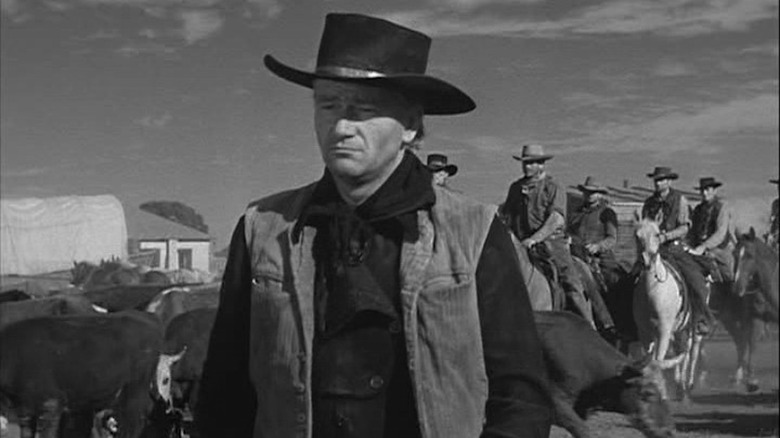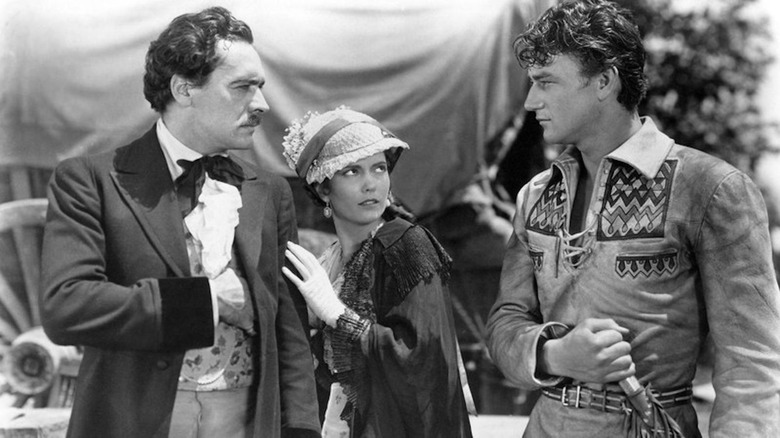John Wayne Had One Big Problem With Being Part Of Plays
John Wayne gets a bit of a bad rap as an actor. Yes, he mostly made star vehicles after his breakthrough performance in John Wayne's "Stagecoach," but he was willing to challenge himself (and his audience) by playing unlikable protagonists in Howard Hawks' "Red River" and Ford's "The Searchers." He had an acute understanding of film acting, and, according to Ron Howard (who worked alongside the Duke in his final film, Don Siegel's"The Shootist"), could make minor adjustments on the fly that would turn an otherwise ordinary scene into a classic Wayne moment.
But did anyone want to see John Wayne play King Lear on Broadway? Not particularly. At least, not because they thought it would be good.
Wayne was not a classically trained actor. He found his way to motion pictures because Tom Mix owed a favor to legendary USC football coach Howard Jones. When Wayne was forced to quit the team, Mix and Ford brought the young man into their extended company. Even then, Wayne acted opposite many of his era's finest performers: James Stewart, Barbara Stanwyck and Henry Fonda, all of whom got their start on the boards. Did any of their zeal for the theater rub off on Wayne?
The Duke's theatrical career was... not to be
During a wide-ranging 1976 Q&A on "The Phil Donahue Show," Wayne was asked if he'd ever performed on stage, and, if not, did he have any inclination to do so.
"Well, I was in high school plays and that sort of thing," said Wayne. "And we did a charity thing of [Maxwell Anderson and Laurence Stalling's play] 'What Price Glory?' earlier in my career, where all the stars in Hollywood did parts." Wayne, however, was scarred by an oratory contest in his youth, where he recited Shakespeare, and couldn't remember his lines. From that point forward, it was only movies for the Duke. "I kind of like it the way it is," he said. "You get another chance if you blow a line."
Given Wayne's Irish ancestry, he might've been worth seeing in a Sean O'Casey play, or a filmed adaptation of one. His mentor Ford directed a movie of O'Casey's masterpiece "The Plough and the Stars" in 1935, but opted for Preston Foster to star opposite Stanwyck. This production was a miserable experience for Ford, so it was probably best for Wayne to steer clear, especially since he had yet to make the leap from Poverty Row Westerns to the gunslinging big time in "Stagecoach."
If, however, you're curious as to what Wayne's Macbeth might've sounded like, Robin Williams gave us an amusing glimpse in "Dead Poets Society."

